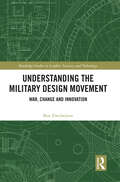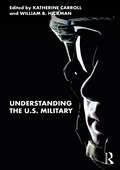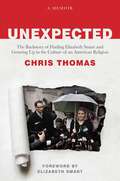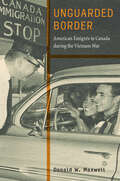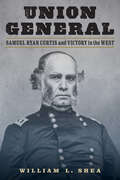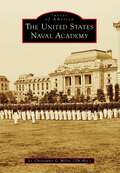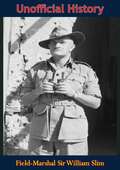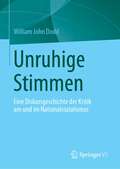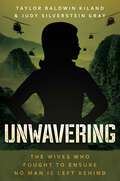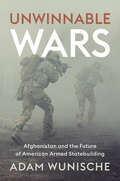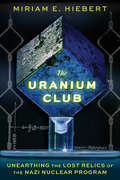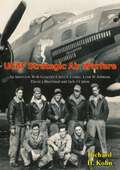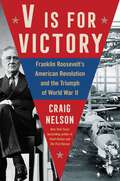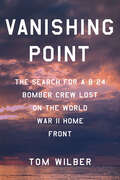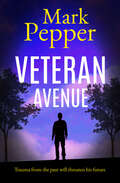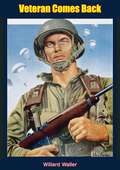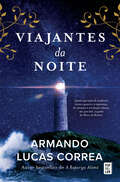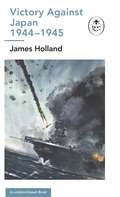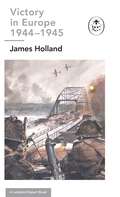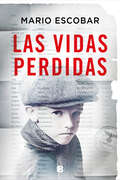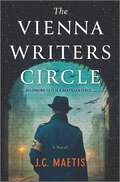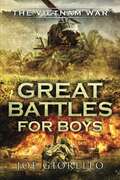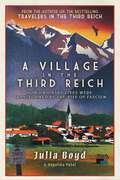- Table View
- List View
Understanding the Military Design Movement: War, Change and Innovation (Routledge Studies in Conflict, Security and Technology)
by Ben ZweibelsonThis book explains the history and development of the military design movement, featuring case studies from key modern militaries. Written by a practitioner, the work shows how modern militaries think and arrange actions in time and space for security affairs, and why designers are disrupting, challenging, and reconceptualizing everything previously upheld as sacred on the battlefield. It is the first book to thoroughly explain what military design is, where it came from, and how it works at deep, philosophically grounded levels, and why it is potentially the most controversial development in generations of war fighters. The work explains the tangled origins of commercial design and that of designing modern warfare, the rise of various design movements, and how today’s military forces largely hold to a Newtonian stylization built upon mimicry of natural science infused with earlier medieval and religious inspirations. Why does our species conceptualize war as such, and how do military institutions erect barriers that become so powerful that efforts to design further innovation require entirely novel constructs outside the orthodoxy? The book explains design stories from the Israel Defense Force, the US Army, the US Marine Corps, the Canadian Armed Forces, and the Australian Defence Force for the first time, and includes the theory, doctrine, organizational culture, and key actors involved. Ultimately, this book is about how small communities of practice are challenging the foundations of modern defence thinking. This book will be of much interest to students of military and strategic studies, defence studies, and security studies, as well as design educators and military professionals.
Understanding the U.S. Military
by Katherine Carroll William B. HickmanThis book offers an accessible introduction to the U.S. military as an institution and provides insights into the military’s structure and norms. Designed for undergraduate students, the book offers an interdisciplinary overview of America’s armed forces through three critical lenses. First, it introduces the military’s constitutional and historical context. Second, it presents concise factual information chosen for its relevance to the military’s structures, procedures, norms, and varied activities. Finally, it intersperses these facts with debates, theories, and questions to spark student interest, class discussion, and further research. The text is written for the beginner but covers complex topics such as force structure and the defense budget. With contributions informed by both scholarly approaches and long military careers, the book will prepare students for further studies in international relations, civil-military relations, or U.S. foreign policy. It also encourages critical thinking, elucidating an institution that undergraduates and other civilians too often perceive as both baffling and above reproach. This book will be of much interest to students of the U.S. military, civil-military relations, U.S. politics, and public policy.
Unexpected: The Backstory of Finding Elizabeth Smart and Growing Up in the Culture of an American Religion
by Chris ThomasThe backstory of finding Elizabeth Smart and how growing up in the Mormon culture pushed the author to develop the exact kind of intuition that was needed to help manage Elizabeth&’s kidnapping and rescue while the world watched.Chris Thomas is not yet thirty years old when he finds himself managing the immense pressure, eccentric personalities, and extenuating circumstances of an international story, where one small misstep could adversely impact the search for a missing teenager and the reputation of her family. Now, twenty years later, Thomas takes readers behind the scenes, providing new details, perspectives, and commentary on finding Elizabeth Smart. In the process of reflecting on Elizabeth&’s search and rescue, Thomas discovers how growing up in the culture of The Church of Jesus Christ of Latter-day Saints (commonly known as Mormon) helped push him to develop the exact kind of intuition needed to manage Elizabeth&’s kidnapping and rescue, and to do so while the world watched. Unexpected juxtaposes crucial events from the Smart case with Thomas&’s experience growing up in the Latter-day Saint culture, including coming to understand the secret of a broken war hero before it was too late.
Unguarded Border: American Émigrés in Canada during the Vietnam War (War Culture)
by Donald W. MaxwellThe United States is accustomed to accepting waves of migrants who are fleeing oppressive conditions and political persecution in their home countries. But in the 1960s and 1970s, the flow of migration reversed as over fifty thousand Americans fled across the border to Canada to resist military service during the Vietnam War or to escape their homeland’s hawkish society. Unguarded Border tells their stories and, in the process, describes a migrant experience that does not fit the usual paradigms. Rather than treating these American refugees as unwelcome foreigners, Canada embraced them, refusing to extradite draft resisters or military deserters and not even requiring passports for the border crossing. And instead of forming close-knit migrant communities, most of these émigrés sought to integrate themselves within Canadian society. Historian Donald W. Maxwell explores how these Americans in exile forged cosmopolitan identities, coming to regard themselves as global citizens, a status complicated by the Canadian government’s attempts to claim them and the U.S. government’s eventual efforts to reclaim them. Unguarded Border offers a new perspective on a movement that permanently changed perceptions of compulsory military service, migration, and national identity.
Union General: Samuel Ryan Curtis and Victory in the West
by William L. SheaUnion General is the first biography of Samuel Ryan Curtis, the most important and most successful general on either side in the Civil War west of the Mississippi River. Curtis was a West Point graduate, Mexican War veteran, and determined foe of secession who gave up his seat in Congress to fight for the Union. At Pea Ridge in 1862 and Westport in 1864, he marched hundreds of miles across hostile countryside, routed Confederate armies larger than his own, and reestablished Federal control over large swathes of rebel territory. In addition to his remarkable success as a largely independent field commander, Curtis was one of only a handful of abolitionist generals in the Union army. He dealt a heavy blow to slavery in the Trans-Mississippi and Mississippi Valley months before the Emancipation Proclamation went into effect. His enlightened racial policies and practices generated a storm of criticism and led to his temporary suspension in the middle of the conflict—but he was restored to active duty in time to win a crushing victory at Westport, where he saved Kansas and put an end to Price&’s Raid. Before the war Curtis was an accomplished civil engineer, a prime mover of the transcontinental railroad, and an important figure in the emerging Republican Party and was elected three times to the House of Representatives from Iowa. After the war he participated in pioneering efforts in peacemaking with the Plains Indians and helped oversee construction of the Union Pacific across Nebraska. This biography restores Curtis to his rightful place in American history and adds significantly to our understanding of the Civil War.
United States Naval Academy, The (Images of America)
by Christopher MillerFor 178 years, the United States Naval Academy has trained and educated young men and women to be commissioned officers in the US Navy and US Marine Corps. The Naval Academy is the second oldest of the five service academies in the United States. The nearly-340-acre campus is located on the grounds of the old Fort Severn in Annapolis, Maryland. The entire campus, known as the Yard, is listed in the National Register of Historic Places. Admission to the Naval Academy is highly competitive. Since the curriculum leans heavily on science, engineering, and mathematics, all graduates--no matter their major--earn a bachelor of science degree. After completing their coursework, midshipmen enter either the Navy or Marine Corps for a five-year commitment.
Unofficial History
by Field-Marshal Sir William SlimLike most members of the professional military freemasonry, Field Marshal Sir William Slim came to admire “all the soldiers of different races who have fought with me and most of those who have fought against me.” Among the most likable of his enemies were the Wazirs of India’s Northwest Frontier. In 1920, Slim took part in a retaliatory raid on an obscure village. It was an unusually easy victory over the canny Wazirs, whom the British took by surprise and escaped from with scant loss. Afterwards, in the casual frontier way, the British sent a message to the Wazirs, expressing surprise at the enemy’s unusually poor shooting. The Wazirs replied in courtly fashion that their rifles were Short Magazine Lee-Enfields captured in previous fights with the British, and that they had failed to sight the guns to accord with a new stock of ammunition. Now, having calculated the adjustment, they would be delighted to demonstrate their bull’s-eye accuracy any time the British wanted. “One cannot help feeling,” Slim says, “that the fellows who wrote that ought to be on our side.” Slim genuinely enjoyed his virtually blood-free skirmishes with such foes as the Turks, the Wazirs and the Italians in 1940 Ethiopia.“An attempt to depict the lives of ordinary men in and out of combat. The accounts are written with style, wit and exceptional humanity.”—Tom Hall-Print ed.
Unruhige Stimmen: Eine Diskursgeschichte der Kritik am und im Nationalsozialismus
by William John DoddIn dieser Diskursgeschichte analysiert W. J. Dodd die "unruhigen Stimmen" von Gegnern, deren zeitgenössische Kritik am Nationalsozialismus sich aus Positionen des territorialen und inneren Exils auf die "Sprache des Nationalsozialismus" konzentrierte. Die einzelnen Kapitel befassen sich mit den "Vorläufer"-Diskursen, dem öffentlichen Diskurs der Nazis von 1933 bis 1945, den Zeugnissen der "unruhigen Stimmen" im Ausland sowie in privaten und veröffentlichten Texten im "Reich", den Versuchen zur "Entnazifizierung der Sprache" (1945-49) und den Hinterlassenschaften der Nazi-Vergangenheit in einem retrospektiven Diskurs der "Aufarbeitung" der Nazi-Vergangenheit. In der Zeit nach 1945 konzentriert sich das Buch auf die Anfechtung der "befleckten Sprache" und die Instrumentalisierung der NS-Vergangenheit sowie auf das Fortbestehen sprachlicher Tabus im zeitgenössischen deutschen Sprachgebrauch. Das Buch, das durchgehend in englischer Übersetzung vorliegt, ist eine unschätzbare Quelle für Wissenschaftler der Diskursanalyse, der Soziolinguistik und der deutschen Geschichte und Kultur sowie für Leser mit einem allgemeinen Interesse an Sprache und Politik.
Unwavering: The Wives Who Fought to Ensure No Man is Left Behind
by Taylor Baldwin Kiland Judy Silverstein GrayThe true story of the women who waged an epic home front battle to ensure our nation leaves no man behind.When some of America&’s military men are captured or go missing during the Vietnam War, a small group of military wives become their champions. Never had families taken on diplomatic roles during wartime, nor had the fate of our POWs and missing men been a nationwide concern. In cinematic detail, authors Taylor Baldwin Kiland and Judy Silverstein Gray plunge you directly into the political maneuvering the women navigated, onto the international stage they shared with world leaders, and through the landmark legacy they created.
Unwinnable Wars: Afghanistan and the Future of American Armed Statebuilding
by Adam WunischeIn nine short days, Taliban forces destroyed two decades of American armed statebuilding in Afghanistan. This was no isolated failure. Over the last century, almost every attempt to intervene militarily to prop up or reconstruct an allied state has seen similar dismal outcomes. Why? This book answers that fundamental question. By exploring the factors that hindered success in Afghanistan, Adam Wunische identifies forces common to other unsuccessful U.S. armed statebuilding missions, from Vietnam to Syria, Haiti to Iraq. These forces, he argues, inherently favor insurgencies, forfeit sustainability for quick results, and create dependencies and corruption – all of which undermine the goal of building a state that can stand on its own. Not only that, but most of these forces are inescapable and uncontrollable. This means any future attempts at armed statebuilding will likely also be unwinnable, with costs and consequences far outpacing America’s interests and benefits. Faced with a future likely dominated by proxy wars, Wunische offers a novel way forward to prevent the U.S. from chasing new wars that it is destined to lose.
The Uranium Club: Unearthing the Lost Relics of the Nazi Nuclear Program
by Miriam E Hiebert Timothy W Koeth"Much as Marcel Proust spun out a lifetime of memories from the taste of a madeleine, The Uranium Club spins out the history of Nazi Germany's failed World War II atomic-bomb project by tracing the whereabouts of a small, blackened cube of Nazi uranium. It's a riveting tale of competing German ambitions and arrogant mistakes, a nonfiction thriller tracking teams of American scientists as they race to prevent Hitler from beating the United States to the atomic bomb." —Richard Rhodes, author of The Making of the Atomic BombTim Koeth peered into the crumpled brown paper lunch bag; inside was a surprisingly heavy black metal cube. He recognized the mysterious object instantly—he had one just like it sitting on his desk at home. It was uranium metal, taken from the nuclear reactor that Nazi scientists had tried—and failed—to build at the end of World War II. This unexpected gift, wrapped in a piece of paper inscribed with a few cryptic but crucial lines, would launch Koeth, a nuclear physicist and professor, and his colleague Miriam Hiebert, a cultural heritage scientist, on an odyssey to trace the tale of these cubes—two of the original 664 on which the Third Reich had pinned their nuclear ambitions. Part treasure hunt, part historical narrative, The Uranium Club winds its way through the back doors of World War II and Manhattan Project histories to recount the contributions of the men and women at the forefront of the race for nuclear power. From Werner Heisenberg and Germany's nuclear program to the Curies, the first family of nuclear physics, to the Allied Alsos Mission's infiltration of Germany to capture Nazi science to the renegade geologists of Murray Hill scouring the globe for uranium, the cubes are lodestars that illuminate a little-known—and hugely consequential—chapter of history.The cubes are physical testimony to the stories of the German failure, and the successful American program that launched the world into the modern nuclear age, and the lessons for modern science that the contrast in these two programs has to offer.
US Air Force Alphabet Book (Jerry Pallotta's Alphabet Books)
by Jerry Pallotta Sammie GarnettLearn fascinating facts about an important branch of our armed forces, the US Air Force--one for each letter of the alphabet!With facts from both history and the modern era, each letter covers something air force related. From the fighter jets and Red Horse to Tuskegee and insignia, this book is a wealth of information that highlights the courage and commitment it takes to serve in the US Air Force.
US Coast Guard Alphabet Book (Jerry Pallotta's Alphabet Books)
by Jerry Pallotta Sammie GarnettLearn fascinating facts about an important branch of our armed forces, the US Coast Guard--one for each letter of the alphabet!With facts from both history and the modern era, each letter covers something coast guard related. From the fast response boats and icebreakers to Jacob's ladders and yardarms, this book is a wealth of information that highlights the courage and commitment it takes to serve in the US Coast Guard.
USAF Strategic Air Warfare: An Interview With Generals Curtis E Lemay, Leon W Johnson, David a Burchinal and Jack J Catton
by Richard H. Kohn United States Air Force Office of Air Force History“Military history helps provide a realistic perspective on warfare. Through the study of past events, we gain insight into the capabilities of armed forces and, most importantly, a sound knowledge of the policies, strategies, tactics, doctrine, leadership, and weapons that have produced success in battle. Each of us, in broadening our knowledge of air power’s past, helps to maintain the most effective Air Force possible, now and in the future.”-Foreword.Early in June 1984 some thirty-five of the retired four-star generals of the United States Air Force gathered in Washington, D.C., for the annual Senior Statesmen Conference. Each year since the early 1960s the Air Force has invited its retired four-star generals to Washington. From that group in 1984, the Office of Air Force History invited four general officers—Generals Curtis E. LeMay, Leon W. Johnson, David A. Burchinal, and Jack J. Catton—to participate in a group oral interview on the history of strategic air warfare. They accepted and on June 15, 1984, at Bolling Air Force Base, the four discussed for nearly three hours the development and evolution of strategic air warfare. Because the session ended without time for a discussion of the Cuban Missile Crisis and the Vietnam War, the four conferred again, this time by telephone, to discuss these and other issues not considered earlier. This interview was the third in a series begun by the Office of Air Force History with the “senior statesmen,” the first in 1982 covering air superiority in World War II and Korea, the second in 1983 discussing the type of aerial interdiction used in World War II, Korea, and Vietnam.
V Is For Victory: Franklin Roosevelt's American Revolution and the Triumph of World War II
by Craig NelsonNew York Times bestselling historian Craig Nelson reveals how FDR confronted an American public disinterested in going to war in Europe, skillfully won their support, and pushed government and American industry to build the greatest war machine in history, &“the arsenal of democracy&” that won World War II.As Nazi Germany began to conquer Europe, America&’s military was unprepared, too small, and poorly supplied. The Nazis were supported by robust German factories that created a seemingly endless flow of arms, trucks, tanks, airplanes, and submarines. The United States, emerging from the Great Depression, was skeptical of American involvement in Europe and not ready to wage war. Hardened isolationists predicted disaster if the country went to war. In this fascinating and deeply researched account, Craig Nelson traces how Franklin D. Roosevelt steadily and sometimes secretively put America on a war footing by convincing America&’s top industrialists such as Henry Ford Jr. to retool their factories, by diverting the country&’s supplies of raw materials to the war effort, and above all by convincing the American people to endure shortages, to work in wartime factories, and to send their sons into harm&’s way. Within a few years, the nation&’s workers were producing thousands of airplanes and tanks, hundreds of warships and submarines. Under FDR&’s resolute leadership, victory at land and sea and air across the globe began at home in America—a powerful and essential narrative largely overlooked in conventional histories of the war but which, in Nelson&’s skilled, authoritative hands, becomes an illuminating and important work destined to become an American history classic.
Vanishing Point: The Search for a B-24 Bomber Crew Lost on the World War II Home Front
by Tom WilberIn Vanishing Point, award winning journalist and author Tom Wilber pieces together the largely forgotten story of the bomber, Getaway Gertie, and an eclectic group of enthusiasts who have spent years searching for it. At the height of World War II, a B-24 Liberator bomber vanished with its crew while on a training mission over upstate New York. The final hours and ultimate resting place of pilot Keith Ponder and seven other US aviators aboard the plane remain mysteries to this day. The tale is at once a compelling instance of loss on the World War II American home front and a more extensive, largely unreported history. Ponder–a 21-year-old from rural Mississippi–and his crew were tragically unexceptional casualties in the monumental effort to recruit and train an air force en masse to counter the global conquest of Nazi Germany and Imperial Japan. More than fifteen thousand American airmen and, in some cases, women burned, crashed, or fell to their deaths in stateside training accidents during the war–their lives and stories shuffled away in piles of Air Force bureaucracy.The forgotten story of Getaway Gertie was originally inspired by summer evenings around the campfire on the shores of Lake Ontario, where parts of the plane have washed up. Building on those campfire tales, Wilber deftly connects myth with fact and memory with historicity. The result is a vivid portrait of the forgotten soldier of the home front and a new take on the meaning of wartime sacrifice as the last survivors of the Greatest Generation pass away.
Veteran Avenue: A twisting thriller perfect for Jack Reacher fans
by Mark PepperA friend&’s violent death and a haunting childhood memory send an aimless ex-soldier back into fighting mode, in this thriller by &“a writer to watch&” (Time Out).1978. While on holiday in America, British eight-year-old John Frears is befriended by a stranger in the Oregon wilderness and stolen away from his parents. After a bizarre hour spent in a log cabin, he is sent away carrying a picture of a young girl.2013. Since leaving the military, John Frears has been drifting, unable to settle. When he hears his friend Donnie Chester was shot and killed, he feels compelled to travel to Los Angeles for the funeral. As John slowly becomes entangled with his friend&’s grieving sister, and a desperate, disillusioned LAPD cop, his life becomes more complicated than he could have imagined. And when the mysterious event from his past crashes into the present, it could mean the difference between life and death . . .
Veteran Comes Back
by Willard WallerIs he the man you knew—or a stranger? Is he bitter? hopeful? disillusioned? What sort of husband, father, son, will he make? Will you let demagogues exploit and subvert him as they have done elsewhere? How can we help him find the road back?Will he sell apples and pawn his medals, or will we assure him a job? What of the disabled—how can we restore him to usefulness? Will we make the grim mistake of spending too much—too late—and for the wrong people? These and other questions are answered in this book—a realistic discussion of America’s gravest social problem.…The Veteran’s Future is in your hands—and Your Future is in his hands!THIS book is written not only to help the veteran adjust to society, but also to help the veteran’s father, mother, wife, sister, sweetheart, to understand his state of mind. For it is only through a sympathetic understanding of what he has really become through war, that it is possible to help him at all. This book deals with such concrete problems as: the veteran’s marital relations—dealing with the crippled veteran at home—war brides and G.I. babies—veterans organizations—re-educating veterans—the lures of demagogues to capture the veteran’s vote—his struggle to get a satisfactory job—the delicate question of treating psychoneurotic veterans—and many others.…This book does not presume to give all the answers. The author hopes that it will be a firebell in the night—to wake up America now to the veteran problem before it descends upon us in all its fury.
Viajantes da Noite
by Armando Lucas CorreaQuatro gerações de mulheres vivem a guerra e a esperança, do nazismo à revolução cubana, até, por fim, à queda do Muro de Berlim. BERLIM, 1931: Ally Keller, uma jovem poeta, está sozinha quando dá à luz Lilith, uma bebé mestiça. Após anos de tensão no país, os nazis chegam finalmente ao poder, e Ally sabe que tem de manter a sua bebé nas sombras para a proteger da crença mortífera na pureza ariana. Conforme Lilith cresce, torna-se cada vez mais difícil resguardá-la, pelo que Ally se vê obrigada a enviar a filha para longe. HAVANA, 1958: Agora adulta, Lilith tem poucas lembranças da mãe ou da infância na Alemanha. Ao lado de Martin, um piloto com fortes laços ao governo de Fulgencio Batista, tem toda a sua vida pela frente. Mas à medida que as chamas da revolução cubana irrompem, Lilith e Nadine, a filha recém-nascida, encontram-se subitamente numa encruzilhada aterrorizante: permanecer ou fugir do país.BERLIM, 1988: Como cientista na Alemanha, Nadine dedica-se a garantir a dignidade dos restos mortais de todos aqueles que foram assassinados pelos nazis. No entanto, passou a vida inteira a fugir à verdadeira história da sua família. Será a sua filha, Luna, quem a irá convencer a descobrir o porquê das escolhas feitas pela mãe e pela avó. E será Luna quem, no final, terá de lidar com uma traição tão chocante que poderá alterar tudo aquilo que achava saber sobre o passado da família. SOBRE O LIVRO:«Uma saga familiar comovente que explora o legado da guerra e da revolução.» Booklist «Impressionante. Os leitores irão adorar esta viagem emocionante e terminar o romance com uma bem-vinda sensação de catarse.» Kirkus Reviews «Uma história multigeracional espantosa cujo ritmo, tenso, faz as páginas voarem. Os leitores irão fi car profundamente comovidos.» Publishers Weekly «Ler Armando Lucas Correa lembra-nos do verdadeiro valor dos pequenos, mas colossais pormenores que tornam a literatura algo maior. Um romance carregado de mistérios e diálogos comoventes que nos expõem ao que é ser pessoa.» Wendy Guerra,poetisa e romancista cubana «Oportuno e de leitura obrigatória.» People «Fascinante. Uma entrada brilhante nas almas, terrores, desalento, esforços e bravura de pessoas que foram descartadas… Agora, numa nova era de gente em perigo e à deriva nos mares do mundo, este magnífico romance - e as inesperadas e intrincadas tragédias das suas personagens poderosamente imaginadas - evidencia esta eterna injustiça.» Thomas Keneally, autor bestseller de A Lista de Schindler
Victory Against Japan 1944-1945: (WW2 #12) (The Ladybird Expert Series #18)
by James HollandBOOK 12 OF THE LADYBIRD EXPERT HISTORY OF THE SECOND WORLD WAR, FROM AWARD-WINNING HISTORIAN JAMES HOLLANDFeaturing stunning illustrations from Keith Burns, bringing the story to life in vivid detailWhy did Japan decide to attack at Pearl Harbour?What was the Japanese vision of a Greater Asian Co-Prosperity Sphere?How did the American strategy turn the tide against Japanese offensives?Uncover the complexities of the brutal war against Japan.From the surprise attack on Pearl Harbour, Oahu, to the Philippines Campaign, the Allies were finally able to turn the tide against the onslaught of Japanese forces.Ending in Japanese surrender after the devastating atomic bombings of Nagasaki and Hiroshima, the war in Japan was eventually won, but at the cost of civilian lives.THE WAR THAT LED TO TWO ATOMIC BOMBINGSWritten by historian, author and broadcaster James Holland, Victory Against Japan is an essential introduction to the tactics that finally brought an end to the Second World War.__________Discover the full Ladybird Expert WW2 series:BlitzkriegThe Battle of BritainBattle of the AtlanticThe Desert WarThe Eastern FrontThe Pacific WarThe Bomber WarThe War in ItalyThe Battle for NormandyThe War in BurmaVictory in EuropeVictory Against Japan
Victory in Europe 1944-1945: (WW2 #11) (The Ladybird Expert Series #17)
by James HollandBOOK 11 OF THE LADYBIRD EXPERT HISTORY OF THE SECOND WORLD WAR, FROM AWARD-WINNING HISTORIAN JAMES HOLLANDFeaturing stunning illustrations from Keith Burns, bringing the story to life in vivid detailWhat was Operation Bagration?Why did the Warsaw Uprising fail?How were the Nazis finally crushed?BRITAIN'S VICTORY IN EUROPE was a pivotal moment in the impending end of WW2, but it was no easy feat.With most of Europe under Axis control, the Allies battled through the brutal winter of 1945 to overcome German forces and finally defeat Hitler.THE PINNACLE MOMENT IN BRITAIN'S WW2 SUCCESSWritten by historian, author and broadcaster James Holland, Victory in Europe is an essential, accessible introduction to Britain's triumph over the Nazis.__________Discover the full Ladybird Expert WW2 series:BlitzkriegThe Battle of BritainBattle of the AtlanticThe Desert WarThe Eastern FrontThe Pacific WarThe Bomber WarThe War in ItalyThe Battle for NormandyThe War in BurmaVictory in EuropeVictory Against Japan
Las vidas perdidas
by Mario EscobarUno de los autores españoles más traducidos y leídos en Estados Unidos y en otros catorce países. Más de 300.000 ejemplares vendidos. Esta narración impecablemente documentada nos cuenta la increíble historia de una mujer dispuesta a sacar la verdad a la luz. Una novela basada en hechos reales que recupera uno de los más conmovedores testimonios de humanidad y altruismo. Esta es la apasionante historia de una mujer, Valérie Portheret, que descubrió en un archivo olvidado los nombres de ciento ocho niños y dedicó el resto de su vida a devolverles la identidad. Una joven decidida a mostrar la verdad. Lyon, 1992. Una estudiante tiene que enfrentarse a un país y a una universidad que quieren pasar página y dejar atrás el pasado, pero el hallazgo de una vieja caja con las fichas de unos niños judíos, en paradero desconocido desde el verano de 1942, la anima a indagar en el pasado de su ciudad y a rescatar del olvido a un puñado de héroes anónimos. Un grupo de personas corrientes dispuestas a arriesgarlo todo. Lyon, 1942. Los nazis han aprobado la «solución final» y empiezan las deportaciones masivas de cientos de miles de judíos provenientes de los países ocupados, entre ellos, Francia. Klaus Barbie, un cruel funcionario de las SS, ha recibido la orden de expulsar a todos los judíos de la región, pero un grupo de hombres y mujeres intentará, en una endiablada carrera contrarreloj, salvar a los más pequeños antes de que sea demasiado tarde. Más de un centenar de niños perdidos a quien devolver sus vidas. Mientras por las calles de Lyon corre un pasquín con el lema «No os llevaréis a los niños», varios miembros de asociaciones humanitarias buscan la forma de salvar a todos los menores de dieciséis años de los campos de concentración alemanes. Un pueblo unido para salvaguardar su dignidad y demostrar así al mundo que, incluso en sus horas más oscuras, el bien puede vencer al mal. Reseñas:«Una mirada importante y sensible al triunfo del espíritu humano».New York Journal of Books «El relato de Escobar atrae a los lectores con descripciones convincentes, emotivas y deslumbrantes, mientras profundiza en la naturaleza humana, la maldad, los prejuicios y el perdón».Historical Novel Society «Mario Escobar se ha convertido en un detective de lupa y archivo histórico. Sus últimas obras se han propuesto novelar hechos apartados de un manotazo de nuestro pasado y revivir personajes olvidados».Manuel P. Villatoro, ABC Historia «Mario Escobar saca el lado más humano de la gente».Nacho Ares, SER Historia «Las novelas de Mario Escobar son una vacuna contra el mal».Herrera en COPE
The Vienna Writers Circle: A Historical Fiction Novel
by J. C. MaetisA gripping and powerful tale of resilience and courage set in Vienna on the brink of WWII, as two members of Freud&’s Circle try to keep themselves and their loved ones safe as the SS closes in.Spring, 1938: Café Mozart in the heart of Vienna is beloved by its clientele, including cousins Mathias Kraemer and Johannes Namal. The two writers are as close as brothers. They are also members of Freud&’s Circle—a unique group of the famed psychiatrist&’s friends and acquaintances who once gathered regularly at the bright and airy café to talk about books and ideas over coffee and pastries. But dark days are looming. With Hitler&’s annexation of Austria, Nazi edicts governing daily life become stricter and more punitive. Now Hitler has demanded that the &“hidden Jews&” of Vienna be tracked down, and Freud&’s Circle has been targeted. The SS aims to use old group photos to identify Jewish intellectuals and subversives. With the vise tightening around them, Mathias and Johannes&’s only option appears to be hiding in plain sight, using assumed names and identities to evade detection, aware that discovery would mean consignment to a camp or execution. Faced with stark and desperate choices, Mathias, Johannes, their families and friends all find their loyalties and courage tested in unimaginable ways. But despite betrayal, heartache and imprisonment, hope remains, and with it, the determination to keep those they love alive, and Mathias and Johannes at the same time discovering that what originally condemned them—their writing—might also be their salvation.
The Vietnam War (Great Battles for Boys)
by Joe Giorello Sibella GiorelloFrom first-person accounts to front-line battlefield action reports, boys will learn about the Vietnam War, including the politics that sent American soldiers into this deadly and disastrous conflict. <p><p> Written in an engaging style and with dozens of historical photos, Great Battles for Boys captivates even the most reluctant readers. Boys learn about the military strategies, tactics, and weapons that won (or lost) the most significant battles of world history. <p><p> Boys also learn about the difference between democracy and Communism, and how that difference helped fuel the United States’ entry into another country's civil war.
A Village in the Third Reich: How Ordinary Lives Were Transformed by the Rise of Fascism
by Julia Boyd Angelika PatelAn intimate portrait of German life during World War II, shining a light on ordinary people living in a picturesque Bavarian village under Nazi rule, from a past winner of the Los Angeles Times Book Prize for History.Hidden deep in the Bavarian mountains lies the picturesque village of Oberstdorf—a place where for hundreds of years people lived simple lives while history was made elsewhere. Yet even this remote idyll could not escape the brutal iron grip of the Nazi regime. From the author of the international bestseller Travelers in the Third Reich comes A Village in the Third Reich, shining a light on the lives of ordinary people. Drawing on personal archives, letters, interviews and memoirs, it lays bare their brutality and love; courage and weakness; action, apathy and grief; hope, pain, joy, and despair. Within its pages we encounter people from all walks of life – foresters, priests, farmers and nuns; innkeepers, Nazi officials, veterans and party members; village councillors, mountaineers, socialists, slave labourers, schoolchildren, tourists and aristocrats. We meet the Jews who survived – and those who didn&’t; the Nazi mayor who tried to shield those persecuted by the regime; and a blind boy whose life was judged "not worth living." This is a tale of conflicting loyalties and desires, of shattered dreams—but one in which, ultimately, human resilience triumphs. These are the stories of ordinary lives at the crossroads of history.
